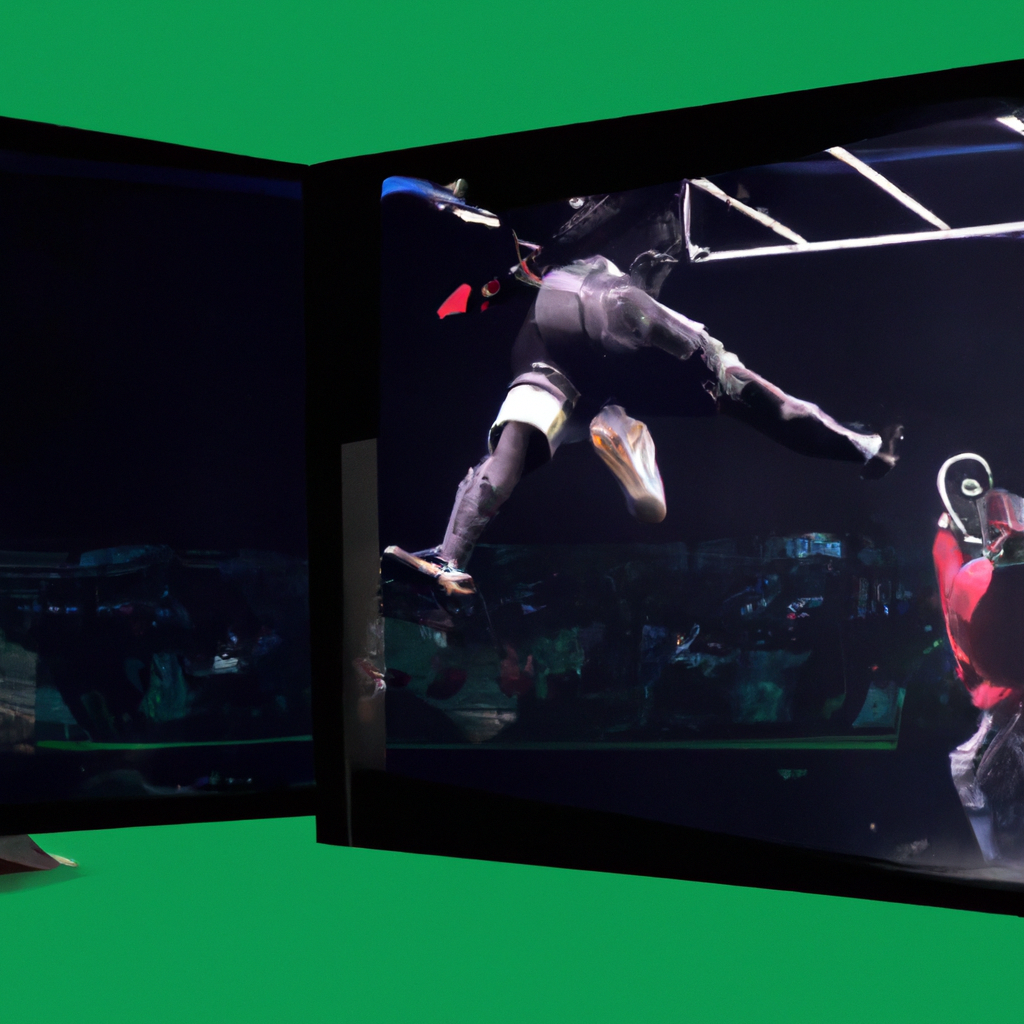Olympic body forms Esports Commission

The Impact of Olympic Body Forms Esports Commission on Athletes’ Performance
The recent formation of an Esports Commission by the International Olympic Committee (IOC) has sparked a debate among athletes and fans alike. This move signifies a significant shift in the way traditional sports organizations view and approach esports. The impact of this decision on athletes’ performance is a topic of great interest and concern.
Esports, or competitive video gaming, has seen a meteoric rise in popularity in recent years. With millions of fans tuning in to watch tournaments and competitions, esports has become a global phenomenon. The IOC’s decision to form an Esports Commission reflects the growing recognition of esports as a legitimate and valuable form of competition.
One of the key concerns surrounding the formation of the Esports Commission is the potential impact on athletes’ performance. Traditional sports organizations have long recognized the importance of physical fitness and training in achieving peak performance. However, esports presents a unique challenge in that it is primarily a mental and strategic game.
Athletes who compete in esports must possess a high level of cognitive abilities, including quick decision-making, strategic thinking, and hand-eye coordination. These skills are honed through hours of practice and dedication, much like traditional athletes train their bodies. The formation of the Esports Commission by the IOC raises questions about how esports athletes will be supported and trained to ensure they can perform at their best on the global stage.
One potential benefit of the Esports Commission is the opportunity for esports athletes to receive the same level of support and resources as traditional athletes. This could include access to training facilities, coaching, and sports science expertise to help them improve their performance. By providing esports athletes with the tools they need to succeed, the Esports Commission could help elevate the level of competition and showcase the skill and dedication of esports athletes to a global audience.
However, there are also concerns about how the formation of the Esports Commission could impact the culture and community of esports. Many esports fans and players value the grassroots nature of the sport, where anyone with a passion for gaming can compete and succeed. The involvement of a traditional sports organization like the IOC could lead to changes in the way esports is organized and regulated, potentially alienating some fans and players.
Despite these concerns, the formation of the Esports Commission by the IOC represents a significant step forward for the recognition and legitimization of esports as a sport. By providing support and resources to esports athletes, the Esports Commission has the potential to elevate the level of competition and showcase the skill and dedication of esports athletes to a global audience.
In conclusion, the impact of the Olympic body forming an Esports Commission on athletes’ performance is a topic of great interest and debate. While there are concerns about how this decision could change the culture of esports, there is also the potential for esports athletes to receive the support and resources they need to succeed on the global stage. As esports continues to grow in popularity and recognition, the formation of the Esports Commission by the IOC represents a significant milestone in the evolution of competitive gaming.
Analyzing the Role of Technology in Shaping Olympic Body Forms Esports Commission

The International Olympic Committee (IOC) recently announced the formation of a new Esports Commission, signaling a significant shift in the way the Olympic body views and engages with the world of competitive gaming. This move comes as no surprise, given the growing popularity and influence of Esports on a global scale. As technology continues to shape the landscape of sports and entertainment, it is essential for organizations like the IOC to adapt and embrace these changes.
The formation of the Esports Commission represents a recognition of the importance of Esports in the modern sporting world. With millions of fans and players around the globe, Esports has become a major industry in its own right, with professional players competing for large cash prizes and sponsorships. The IOC’s decision to create a dedicated commission for Esports shows a willingness to engage with this rapidly evolving sector and explore the potential for collaboration and integration with traditional sports.
One of the key roles of the Esports Commission will be to explore the possibility of including Esports in future Olympic Games. While this idea may seem controversial to some, it is important to recognize that Esports has already established itself as a legitimate and competitive form of entertainment. With professional leagues, teams, and players competing at the highest levels, Esports has all the hallmarks of a traditional sport, albeit in a digital format.
The integration of Esports into the Olympic Games would not only bring a new audience to the event but also provide an opportunity for Esports athletes to compete on the world stage and be recognized for their skills and achievements. This move would also help to bridge the gap between traditional sports and Esports, highlighting the common values of competition, teamwork, and dedication that both share.
Technology plays a crucial role in shaping the future of sports, and Esports is no exception. The rise of virtual reality, augmented reality, and artificial intelligence has transformed the way we experience and engage with games, creating new opportunities for innovation and creativity. As Esports continues to evolve and grow, it is essential for organizations like the IOC to stay ahead of the curve and embrace these technological advancements.
The formation of the Esports Commission is a step in the right direction, signaling a commitment to exploring the potential of Esports and its impact on the world of sports. By bringing together experts from both the traditional sports and Esports industries, the commission will be able to leverage their knowledge and experience to shape the future of competitive gaming.
In conclusion, the formation of the Esports Commission by the IOC is a significant development that highlights the growing importance of Esports in the world of sports. By recognizing the value and potential of Esports, the IOC is taking a proactive approach to embracing technology and innovation in the sporting world. As technology continues to shape the landscape of sports, it is essential for organizations like the IOC to adapt and evolve, ensuring that they remain relevant and responsive to the changing needs and interests of athletes and fans alike.
Exploring the Future Trends of Olympic Body Forms Esports Commission in Competitive Gaming
The world of competitive gaming, also known as esports, has been rapidly growing in popularity over the past few years. With millions of fans tuning in to watch professional gamers compete in tournaments for huge cash prizes, it’s no wonder that esports has caught the attention of the International Olympic Committee (IOC). In response to this growing interest, the IOC has recently formed the Olympic Body Forms Esports Commission to explore the possibility of including esports in future Olympic Games.
The formation of this commission marks a significant step forward for the esports industry, as it demonstrates a willingness on the part of the IOC to consider esports as a legitimate form of competition. The commission is made up of a diverse group of individuals, including representatives from the IOC, esports organizations, and professional gamers. Their goal is to study the potential benefits and challenges of including esports in the Olympics, and to make recommendations to the IOC based on their findings.
One of the main reasons why the IOC is considering including esports in the Olympics is the massive popularity of competitive gaming. Esports tournaments regularly attract millions of viewers from around the world, and top players can earn millions of dollars in prize money. By including esports in the Olympics, the IOC would be able to tap into this huge audience and attract a new generation of fans to the Games.
However, there are also challenges to be overcome before esports can be included in the Olympics. One of the main concerns is ensuring that esports competitions meet the same standards of fairness and integrity as traditional sports. This includes addressing issues such as doping, cheating, and match-fixing, which have been a problem in some esports tournaments in the past.
Another challenge is determining which games should be included in the Olympics. There are thousands of different esports games, ranging from first-person shooters to real-time strategy games, and not all of them would be suitable for Olympic competition. The commission will need to carefully consider which games are the most popular and have the most competitive integrity, in order to ensure a successful esports event at the Olympics.
Despite these challenges, the formation of the Olympic Body Forms Esports Commission is a positive step forward for the esports industry. By working closely with the IOC, esports organizations, and professional gamers, the commission will be able to address the concerns and challenges of including esports in the Olympics, and make recommendations that will benefit both the esports community and the Olympic Games.
In conclusion, the formation of the Olympic Body Forms Esports Commission is an exciting development for the world of competitive gaming. By exploring the potential benefits and challenges of including esports in the Olympics, the commission is paving the way for a new era of competition that could attract millions of fans to the Games. While there are still challenges to be overcome, the commission’s work will help to ensure that esports is given the recognition and respect it deserves as a legitimate form of competition.

